December 2016 I felt a bit annoyed when I asked my Department of Communication to support me in giving exposure to advancements and innovations in our on-campus aerospace engineering education, but got their advice to start a personal weblog instead. They explained to me that the “innovative ecosystem of education”, apart from announcing student prizes and teaching awards, is not part of their work. Connecting prospective students with our educational programmes, connecting research and society, and connecting faculty to industry and society is their focus in the coming years. Showing pride in innovative teaching, connecting developments and enhancements in our campus education with other faculties or partner universities is not.
In this 28th blogpost I look back. Writing and publishing posts has worked out differently from what I expected. Has it yielded positive results? Is it worth the effort?
Learning organisation
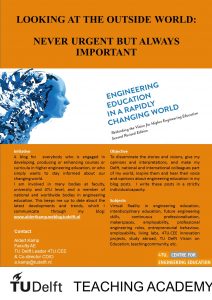 The original purpose for my weblog I had in mind was to give exposure to innovative concepts and developments in the campus education at my faculty. Staff is continuously enhancing or experimenting, often in a trial-and-error loop, with concepts of blended learning, teaching and learning in studio classrooms, adaptive questioning in online digital assessments, connecting physics and math courses to aerospace engineering and technology, and so on.
The original purpose for my weblog I had in mind was to give exposure to innovative concepts and developments in the campus education at my faculty. Staff is continuously enhancing or experimenting, often in a trial-and-error loop, with concepts of blended learning, teaching and learning in studio classrooms, adaptive questioning in online digital assessments, connecting physics and math courses to aerospace engineering and technology, and so on.
Unfortunately only very few have developed the habit of sharing knowledge and experiences of teaching and education. In that respect my faculty has not yet developed in a learning organisation. To my surprise, this is not unique. A recent study on 542 Dutch engineers by HFMtalentindex and the Dutch Royal Institute of Engineering reads on page 3 the bold statement “….engineers (…) don’t put themselves into situations where they can learn from others, since they do not have the necessary competences for that.”
One tenth of a percent
I guess no more than two per cent of the approximately 110 full, associate, assistant professors and fulltime teachers of my Faculty (not counting myself) invests between two and five per cent of their working time to the sharing of results or experiences of innovative campus teaching or consulting people about teaching from outside the faculty. Eighty-five to ninety per cent of the teaching staff spends between zero and one tenth of a per cent (0.1%!) of their working time to an upskilling of didactic competences, learning about new methods of teaching or about shifts in knowledge or skills that are more in demand now or tomorrow than 20 years ago. That’s equivalent to about one half day every three or four years. I can’t believe this is enough for assuring a high level of development of our students in the long run.
Is not that a symptom of what professor Quinn had called “Slow death” in his Change Management Training for Deans at Niagara Falls in October? His book “Deep Change” is, by the way, interesting read to discover what pressure to respond to change can have on an organisation like a university.
“Best practices from elsewhere are among the most convincing learning materials for professionals”
Look at the outside world
For me looking at the outside world of engineering and engineering education is equivalent to discovery and learning. It is crucial in order to develop visions and strategies on education that are sufficiently broad and tailored to our context and inspire people. It is my motto that best practices from elsewhere are among the most convincing learning materials for professionals.
As a result I have decided already before writing my first blogpost, to shift my weblog from disseminating developments in our own programmes, into a bi-weekly “inocculation” of experiences and impressions I get from my look at the outside world: my involvement in the educational experiments and innovative projects of the Dutch 4TU Centre for Engineering Education, the various international university networks, industrial partner programmes, and individual workshops or discussions with universities or industries. Much of what I hear, see and read is in my opinion of interest for everybody who is developing, producing or enhancing courses or programmes.
Thus my blog has become an online log of personal stories and impressions, opinions and interpretations of my view on the outside world of engineering and technology and its higher education. The blog has one single purpose: inspiring teachers and lecturers, professors, programme coordinators and educational leaders in Delft, the Netherlands and anywhere else in the world. I often use the texts as a reference for presentations or workshops I produce as well. And every now and then I update an already published post with new information.
My followers
I find it rewarding that my posts are not only read by Delft colleagues but all over the world. The view statistics vary per post. An average of about one per cent of my followers looks affiliated with my faculty and about ten per cent is affiliated with TU Delft. Thirty per cent lives in the Netherlands and seventy per cent lives abroad. Most of my followers have an affiliation with academia, some ten percent have an industrial affiliation and part of them are probably alumni.
LinkedIn statistics show some of the posts have many views from the regions of Eindhoven or Amsterdam, Porto in Portugal, Madrid or Sevilla in Spain, Toulouse in France, Finland, United Kingdom, or the regions of Boston, Los Angeles or San Francisco. But not everyone who clicks a follow, like, share, reblog or comment link in LinkedIn actually reads the post on my blog.
Favourite subjects
The most successful posts are the ones on a CDIO conference where the repetitive question was “Do we understand what we are doing?”. The second one was the one with the interview om my vision on engineering education in my faculty in 2020, each having 4800 views. The third one was about the rise of interdisciplinary education and the chances for success in discipline-oriented programmes with 4500 views. In the 27 posts I covered a broad spectrum, from virtual reality to the dissatisfaction of fulltime teachers, from the value of entrepreneurial thinking to the use – and development- of evidence-based education methods, from impressions of European, Australian, American and Russian developments. Many of these posts have between 1500 and 3500 views, while the roughly 250 views of the recently published posts are still ramping up. You find a convenient overview of the archive of my posts at aldertkamp.weblog.tudelft.nl/author/aldert/.
I found the posts “What makes social scientists think engineering students should not learn how to design?“, “What trends and developments do 70 engineering deans in Europe care about most?” and “A workshop about worldwide innovations in engineering education. Be inspired or confused” most enjoyable and interesting to write. I have noticed that, once I decide to write a post on a subject, I am listening sharper and have a better eye for meaningful things at a conference or workshop and I have learned to take notes in a more structured manner. This has been very beneficial for my work, pays off for my followers, and could eventually impact engineering education on a large scale.
What’s on my agenda 2018?
 Also in 2018 I am going to reserve working time to write a post typically once every two weeks. I have (already too) many subjects on my mind. They are about breaking the gender stereotype in engineering, the new TU Delft vision on education 2018-2024 in comparison with my personal vision, dreaming of a Master’s around student choices and less strictly regulated environment, and an exploration by Delft honours students of the future of engineering education in Japan.
Also in 2018 I am going to reserve working time to write a post typically once every two weeks. I have (already too) many subjects on my mind. They are about breaking the gender stereotype in engineering, the new TU Delft vision on education 2018-2024 in comparison with my personal vision, dreaming of a Master’s around student choices and less strictly regulated environment, and an exploration by Delft honours students of the future of engineering education in Japan.
And I am pretty sure the 2nd National Interdisciplinary Education conference in Einhoven and the CDIO European Regional Meeting in Moscow about research- and innovation-based education, will give me new food for thought and blogposts in January and February.
I hope you find my posts interesting. If you enjoy reading them, I’d be very grateful if you’d help it spread by emailing it to friends or colleagues, or sharing it on Twitter, LinkedIn or Facebook. Thank you!




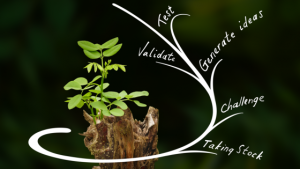
 In the course they will:
In the course they will:
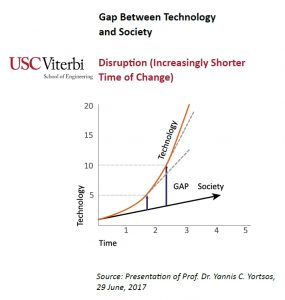


 The message I bring back to my university in Delft is the importance and urgency to integrate the new high- demand knowledge and skills in
The message I bring back to my university in Delft is the importance and urgency to integrate the new high- demand knowledge and skills in 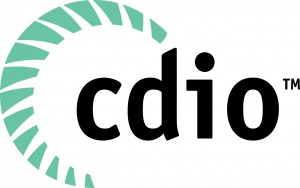 As the Co-director of the CDIO Initiative I was invited for a Russian national
As the Co-director of the CDIO Initiative I was invited for a Russian national 
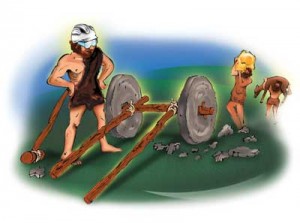 Reinventing wheels
Reinventing wheels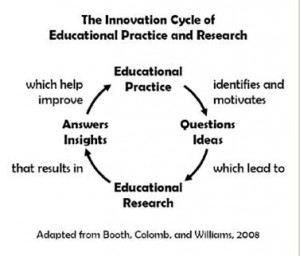 Innovating curricula is about designing effective learning and teaching environments in continual cycles of educational practice and research. That’s what I have always learned in theory. But I have been curious why the professors and lecturers take very different approaches when they do research in their field of engineering or in their education. The structured
Innovating curricula is about designing effective learning and teaching environments in continual cycles of educational practice and research. That’s what I have always learned in theory. But I have been curious why the professors and lecturers take very different approaches when they do research in their field of engineering or in their education. The structured